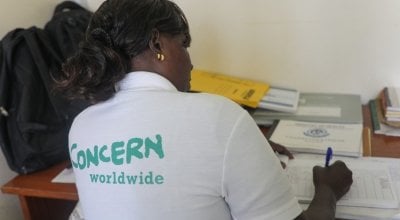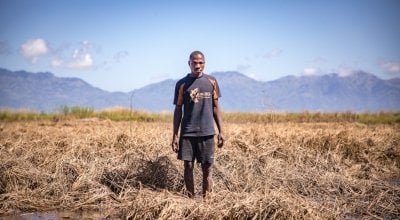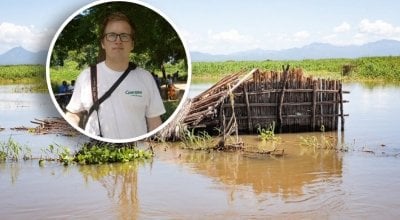
Read our 2024 annual report

Knowledge Hub
Malawi floods: a school becomes a home
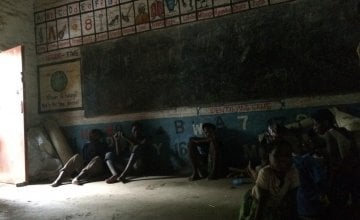
Massive flooding in Malawi has meant thousands are now homeless. We're supporting those affected with essential supplies.
Shelter
Children sit underneath a blackboard, the alphabet displayed above them, but instead of being used as a place of education this classroom now serves as a shelter for people whose homes were destroyed by the worst floods Malawi has seen since the 1970s.
When flood waters swept away homes in January of this year an estimated 230,000 people were made homeless. With nowhere else to go, families had no choice but to seek refuge in schools.
Konja, a twelve year old girl, is just one child who’s found herself living in a classroom.
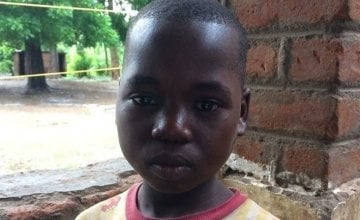
Konja’s story
I met Konja as she was sat with her mother, Chrissy, at the school. Konja explained to me what happened on the day of the floods.
I was at home and in the morning it started coming. I was very frightened.
Gesturing to her chest she demonstrated how high the water rose. Stranded on the roof of their home, Konja and her family could do nothing but hope that help would arrive. After six hours in the rain they were finally rescued when men arrived in canoes.
Hunger
Now taking shelter at the school, Konja’s family are facing a new struggle – hunger. Konja told me:
I miss having food three times a day. We only get one meal a day here.
Crops have been wiped out by the floods and in a country where most people survive from subsistence farming, the threat of widespread hunger in the coming weeks is a real possibility.
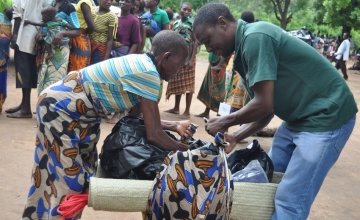
Providing support
Concern Worldwide was one of the first organisations to respond to the flooding in Nsanje, Malawi’s southernmost region. In the initial days following the floods, we supported local authorities with the registration of displaced families in the camps and evacuation centres, which were mostly schools. We also provided families with essential items such as blankets, buckets, cups, and cook utensils.
Get email updates
Find out more about this, and our other work, by receiving email updates.



